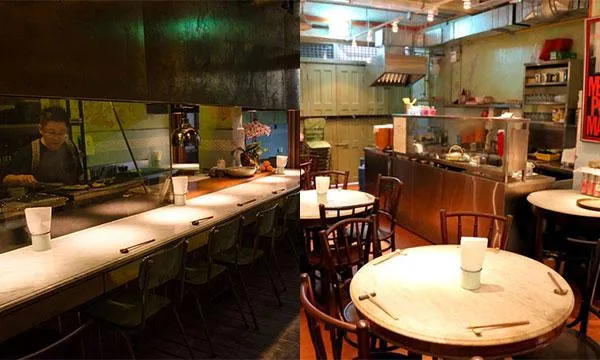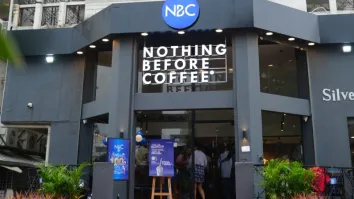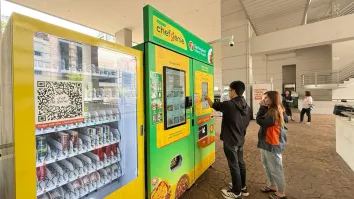
F&B tenants get creative with limited space amidst skyrocketing costs
Hua Bee Restaraunt in Tiong Bahru transforms into a Japanese yakitori restaurant Bincho by night.
Running an F&B business in ultra-expensive Singapore is no easy task with skyrocketing costs prompting a growing number of players to share more than just ideas as they also embrace shared commercial spaces in a bid to outwit the city’s high-cost retail environment.
Also read: 1 in 4 Singaporeans dine out everday
Leasing costs for retail properties in the Lion City remain highly expensive despite overall retail rents falling 1.1% in Q2. Prime retail rents in highly-coveted Orchard Road go for $29.90 per square feet whilst those in suburban areas go for $28.80 psf as of Q2, according to real estate consultant Savills.
The shared space concept is therefore nothing new to land-starved Singapore who has borne witness to an explosive proliferation of co-living and co-working concepts in recent years but have since gained greater traction in the F&B landscape, observed Edmund Tie & Company.
Also read: Muted market environment fails to dampen formation of new F&B firms
Although hawker centers and food courts are early examples of how the shared space concept plays out in the local F&B scene, ET&Co notes that a number of complementary eateries have been taking it one step further and operating from the same outlet.
This includes Hua Bee Restaurant in Tiong Bahru which sells traditional noodles in the day but transforms into Japanese yakitori restaurant Bincho by night. One Man Coffee also operates in the same shophouse as Crust Gourmet Pizza Bar at Upper Thomson Road but have different operating hours on weekdays.
“Co-sharing will probably be sought after by complementary food trades, which are able to maximise the usage of the space through different working hours or are able to cross sell to each other, creating a win-win situation,” Christine Li, senior director for research at Cushman & Wakefield told Singapore Business Review.
This bodes well for complementary concepts like bars and food outlets such as those in Lucky Plaza where bars that have yet to open allow diners to eat at their space during the day.
Also read: F&B sales rose 2.9% to $677m in June
Beyond shared spaces to serve food, operators are also embracing communal spaces to prepare food through shared kitchens and cooking facilities, noted ET& Co. In 2016, the government provided assistance to eight Indian restaurants who were able to open a shared central kitchen. Ingredients were processed on separate days ensuring that secret recipes remained secret but the greatest impact of implementing the shared space concept was on productivity - man-hours were reduced from 90 hours to 24 hours.
Despite the massive potential, greater adoption of sharing facilities brings with it inevitable issues of encroaching which could easily hurt operations on both ends. More than sharing spaces from which tenants could operate and collaborate, tenants would also have to shoulder the same liabilities.
“In a co-share arrangement, the kitchen will be shared, unless 2 different sets of chillers and freezers are employed. If there is a food poisoning outbreak, who does NEA [National Environment Agency] go after? It has to be 1 entity and partners operating 2 different foodfares at the same premise has to be mindful of this,” said Jemme Teo, manager of Fu Lin Bar & Kitchen which operates two different dining concepts for lunch and dinner.
Work permit quota would also have to given to one entity so partners in a co-share set-up would have to share the quota too, added Teo.
"If the combined sales receipt of both partners' sales exceed $1million, the entity has to be GST registered. The quarterly returns has to be filed together as 1 entity to IRAS. Likewise for annual corporate returns," she noted .
Co-share tenants that opt to operate in stand-alone retail spaces like shophouses may also cause unintentioned disruption to the other’s business. "So if the other “co-sharer” suddenly shuts down, the master lessor would have to bear the full rent. This could be disruptive for businesses whose business models are based on lower rents due to co-sharing," added Cushman & Wakefield's Li.
Despite the operational challenges, ET&Co notes that the co-sharing trend is here to stay as the concept offers more than an alternative to traditional real estate options but also provides fertile ground for players to come up with new ways of doing things.
“Whilst the older generation has reservations in sharing spaces, the millennials seem to share everything, anything. Concepts and policies need to innovate to catch up with market trends,” Chua Wei Lin, executive director, regional head of business space at ET& Co said in a report.
Photos from Daniel Food Diary, Formula Voyage
























